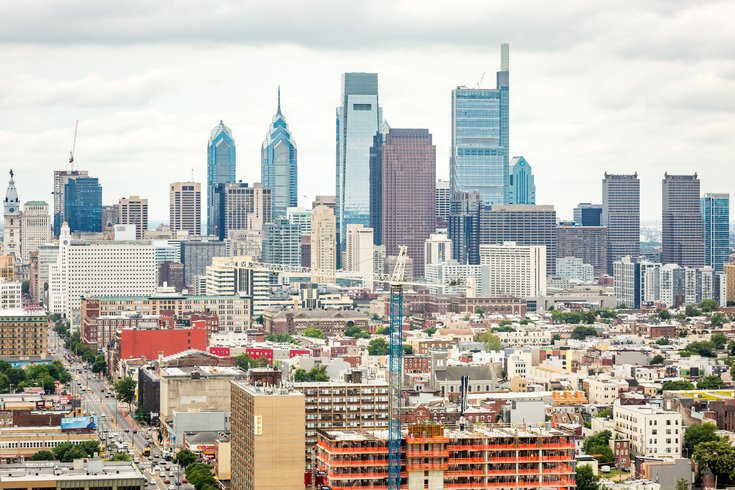
December 08, 2020
 Thom Carroll/for PhillyVoice
Thom Carroll/for PhillyVoice
Philadelphia Health Commissioner Dr. Thomas Farley demonstrated that holiday gatherings are clearly fueling rapid COVID-19 transmission in Philadelphia, the rest of Pennsylvania and the United States as a whole.
Philadelphia's rapidly rising COVID-19 case counts over the past week appear to be clearly tied to social gatherings that occurred over the Thanksgiving holiday, leaving the city in a vulnerable position as the holiday season continues.
Health Commissioner Dr. Thomas Farley outlined a pattern of transmission that strongly indicates the role holidays have played as cases soar to record highs across the United States. There had been evidence of a possible leveling off in late November that was wiped out by a new surge beginning in early December.
The past three weeks of data show a definite shift in transmission, Farley said.
From Nov. 29 through Dec. 5, the city averaged 910 cases per day, a number likely to rise as laboratories report delayed results. The test positivity rate during that period was 12.7%.
The previous week, from Nov. 22 to Nov. 28, the city averaged 820 cases per day and a test positivity rate of 10.6%.
Two weeks ago, from Nov. 15 to Nov. 21, the city averaged 951 cases per day and a test positivity rate of 11.1%.
Philadelphia's latest round of COVID-19 restrictions were put into effect on Nov. 20.
Given the average delay of about five days for the onset of symptoms from the point of exposure, Farley said it's evident that changing behavior around the holidays is a driving factor in the resurgence of the virus.
"This is an extremely dangerous period in this epidemic," Farley said. "I can't emphasize enough the importance of people following safety precautions now."
The health commissioner shared a case study from contact tracers after the holidays. A young woman who experienced some symptoms the day before Thanksgiving got together with 10 family members. She later tested positive, as did seven members of her family.
Philadelphia reported 1,408 new cases of COVID-19 on Tuesday, bringing the citywide total to 75,458 since the beginning of the pandemic. Another 52 fatalities raised the city's death toll to 2,107, as weekly deaths climb well above the rate of about 10 seen in September.
During the week of Nov. 15, there were at least 47 deaths, followed by at least 65 during the week of Nov. 22.
"We're on track to have several hundred more deaths before the end of the year," Farley said.
As state officials issue dire warnings about hospital capacity, the city's numbers continue to rise.
Philadelphia had 886 COVID-19 patients in hospitals as of Tuesday morning, an increase of more than 200 over the past two weeks.
While the city has enough hospital beds at the moment, medical staffing issues are becoming a growing concern. Hospitals in Northeast Philadelphia, where the surge has been particularly severe, are struggling the most and working to transfer some patients to other facilities.
Pennsylvania currently has more than 5,400 COVID-19 patients in hospitals, up from about 3,400 two weeks ago. The number is twice as high as the peak of 2,800 seen during the initial wave of the pandemic this spring.
Over the past nine months, Philadelphia has had more than 1,000 patients hospitalized with COVID-19, Farley said.
The health department is optimistic that COVID-19 vaccines may be rolled out for priority groups as early as next week, pending authorization from the U.S. Food and Drug Administration. Health care workers will be the first in line to receive early doses of vaccines that have been authorized.
Pennsylvania is currently weighing additional restrictions that could bring the rest of the state closer to those that are in effect in Philadelphia through the end of the year, at a minimum. Farley said the city is not considering more restrictions at the moment, but instead hopes to impress upon residents that the risk is as high as it has ever been.
"The epidemic is not in the past yet. Not at all," Farley said. "Most people in Philadelphia are still susceptible to this virus. There are still many more people who could get infected, who could become hospitalized, who could die if we don't prevent the virus from spreading."
Farley said he believes most people heeded the city's warnings about Thanksgiving gatherings, yet there was still a surge in new cases.
"Too many people didn't," Farley said. "We can't afford to have more case spikes like this Thanksgiving spike. We just can't afford to do that."